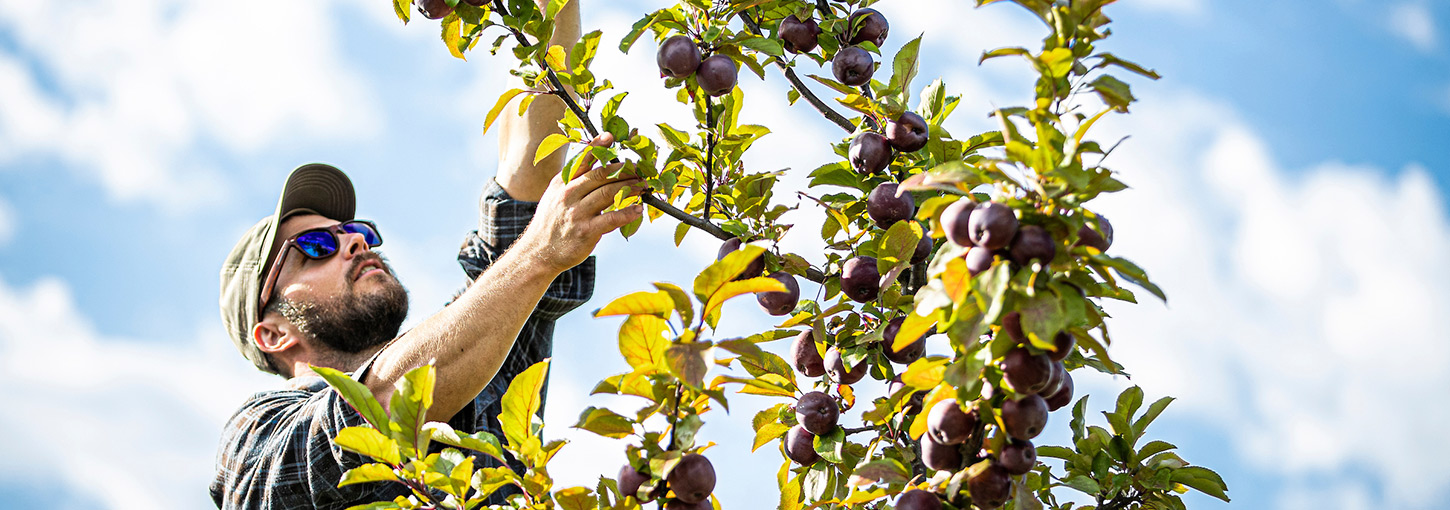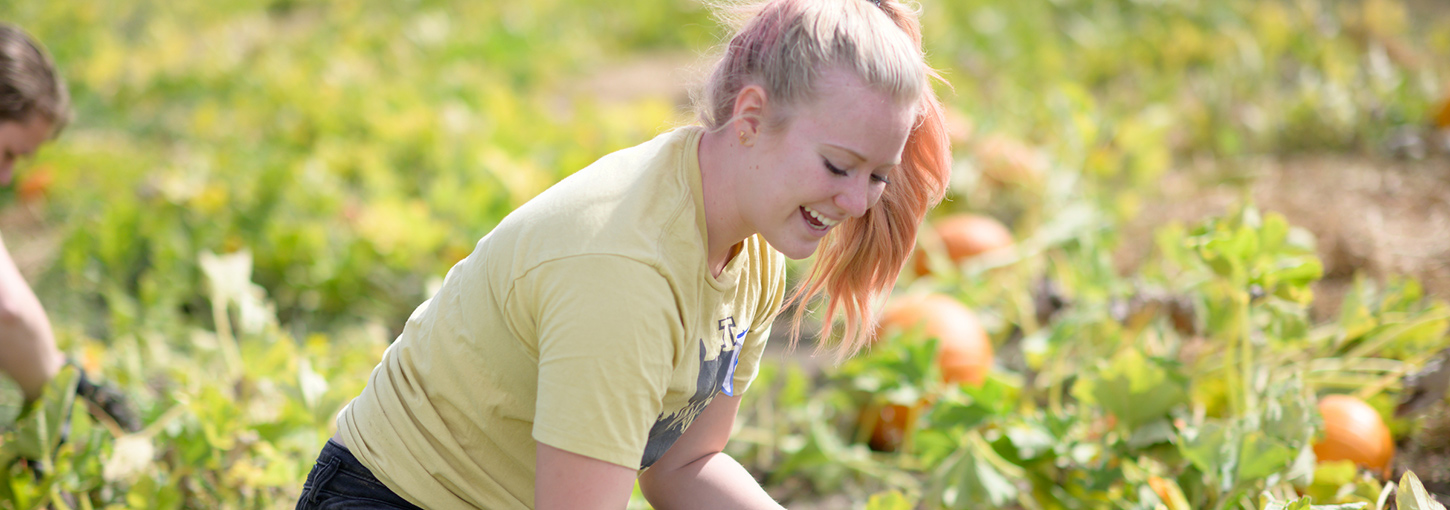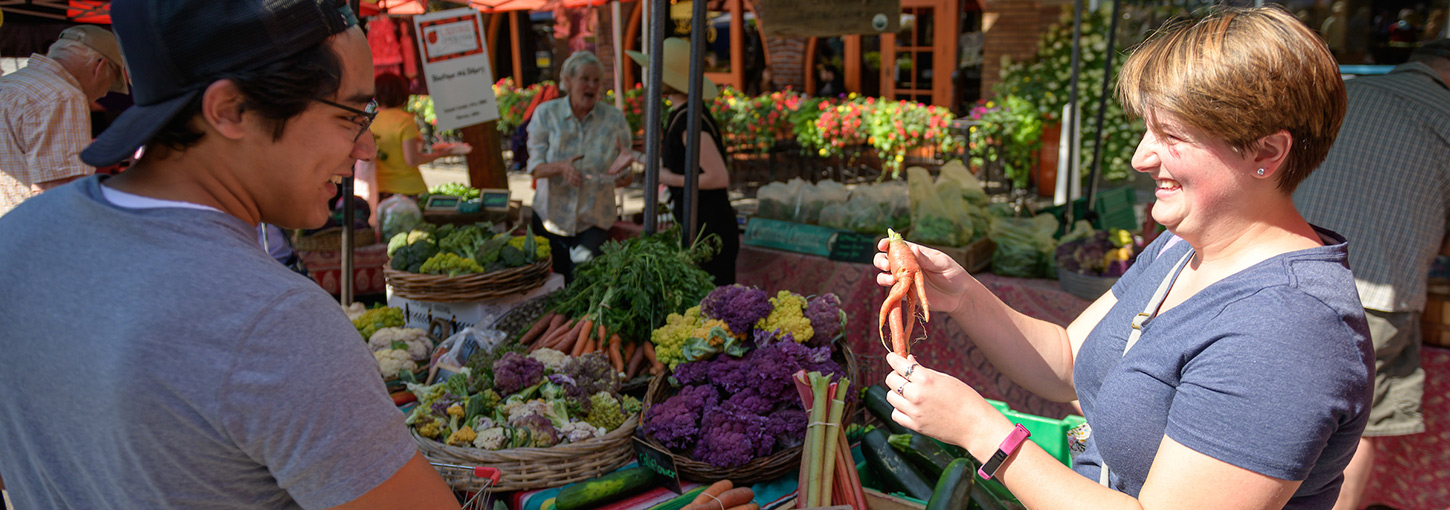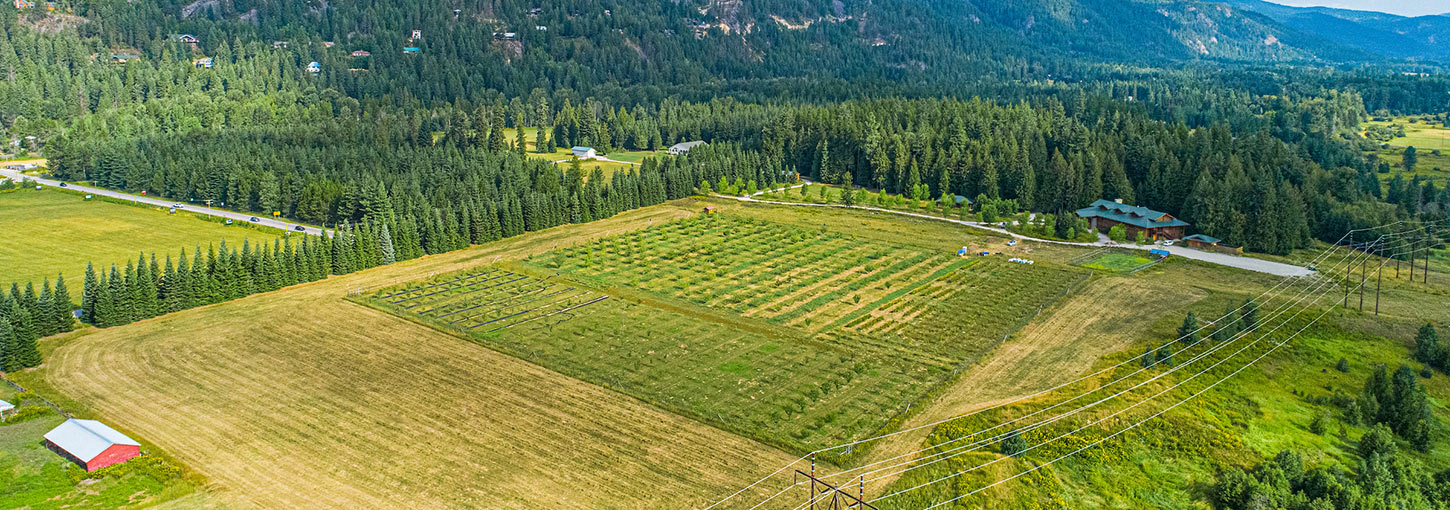Food
What Vandals eat matters!
In 2020, food production and consumption accounted for 4.7% of our total emissions profile; this means that the food we ate emitted nearly as much carbon dioxide as the cars we drove to campus every day.
The 2022 Sustainable Solutions White Paper is proposing innovative ways to reduce our food waste and related carbon emissions, such as developing a donation program of non-spoiled food and creating a composting program to divert food waste from the landfill. Read the Sustainable Solutions White Paper.
Sustainability means not only addressing our emissions, but also supporting our community members who may not have easy access to healthy food. The University of Idaho has programs in place to help those experiencing food insecurity, such as the Vandal Food Pantry, the mobile food pantry and the Swipe Out Hunger program. Questions? Contact foodpantry@uidaho.edu or 208-885-6078.
Soil Stewards Student Farm
The University of Idaho has its very own certified organic farm that produces sustainably grown produce. The Soil Stewards Farm provides students with the opportunity to learn and practice sustainable, small-acreage market garden production. Students who work on the farm gain valuable leadership skills and the scientific knowledge required to operate sustainable food production. The Soil Stewards Farm also gives Vandals affordable access to fresh organic food. Every Thursday from June to September, the farm sells its available produce. Community members can sign up for the CSA program, where customers can get a monthly subscription of fresh produce from the farm. Questions? Email soilstewards@uidaho.edu or visit the Soil Stewards Student Farm website.
Moscow Farmer’s Market
The Moscow Farmers Market takes place 8 a.m. to 1 p.m. every Saturday from May through October in downtown Moscow. The Farmers market is a great place to support local farmers and producers by stocking up on organic produce, meat, cheese, baked goods and other handmade products. Market shoppers can use their SNAP/EBT/WIC benefits or participate in the Double Up Food Bucks program. Read more about the market and its vendors.
Community Supported Agriculture (CSA)
Community-supported agriculture (CSA) is a farming model that directly benefits both local farms and consumers. In the CSA model, consumers can buy a share of a farm, providing financial security to the farmer and in return, the consumer receives a box of fresh produce on a weekly or biweekly basis. Below is a list of local CSAs in the Palouse region. Contact the farms directly to get more information.
Local CSAs
- Soil Stewards Farm – University of Idaho
- Deep Roots Farm
- Hands and Hearts Farm
- Living Soil Microfarms
- Muddy Springs Farm
- Omache Farm
- Runner Bean Ranch
- Smoot’s Flavor Farm
- Wing Over Farm
- 6/2 Ranch Beef
Sandpoint Organic Ag Center
Located in Bonner County, the Sandpoint Organic Agriculture Center (SOAC) is the University of Idaho’s first USDA-Certified Organic program within the College of Agricultural and Life Sciences. The SOAC includes an organic fruit orchard, meeting facilities, dormitories for visiting faculty and students, a shop and a cider house. The SOAC provides a unique environment for students to experience hands-on learning on organic and sustainable crop production, pest management, soil health management, native plant landscapes, horticulture, organic food processing and marketing and food safety and nutrition. Learn more on the Sandpoint Organic Agriculture Center’s website.
Did you know the state of Idaho is ranked as the third largest producer of dairy in the nation? The dairy industry is growing fast and is a major contributor to the health of Idaho’s economy. The University of Idaho is committed to providing expertise, resources and groundbreaking research to continue improving the sustainability and profitability of dairy for Idaho producers.
- U of I Dairy Center
- UI Extension - Dairy
- Idaho Sustainable Agriculture Initiative for Dairy
- Idaho Center for Agriculture, Food and the Environment
Idaho Eats, the University of Idaho’s food service vendor, has its own sustainability commitments.
Idaho Eats serves fair trade, USDA Organic and Rainforest certified coffee at multiple locations across campus. In addition, Idaho Eats partners with Moscow’s favorite, One World Coffee, which serves Landgrove Coffee, roasted locally in Troy, ID, with many varieties of beans, many of which are fair-trade, as well.
Sustainable, plant-based food like black bean burgers, plant-based meat and vegetable wraps are available throughout Idaho Eats dining locations. The Eatery, one of the dining centers on campus, offers a dedicated plant-based station that provides a variety of vegetarian and vegan meals for lunch and dinner using ingredients like lentils, garbanzo beans, tofu, roasted vegetables and more. Other plant-based eats are served in the Eatery and identified by the “Balanced U” icon system, specifically the vegetarian and vegan icons. The Eatery also offers an allergen-free station that serves food excluding the top 8 allergens.
Idaho Eats has partnered with the independent research company, HowGood, to understand the environmental and social impacts of the recipes we offer to the Vandal community. By leveraging these insights, we can identify and celebrate recipes that perform well based on HowGood’s eight standard metrics: greenhouse gas emissions, processing, water usage, biodiversity, animal welfare, soil health, land use and labor risk. High-performing recipes are highlighted in the Eatery’s digital menu screens with the “Best,” “Great,” and “Good” ratings. The icons inform Vandals of how sustainable their food is and support them in making dining decisions that are aligned with their values.
- HowGood "Best" Rating – This recipe has an environmental and social impact better than 95% of food products.
- HowGood "Great" Rating – This recipe has an environmental and social impact better than 85% of food products.
- HowGood "Good" Rating – This recipe has an environmental and social impact better than 75% of food products.
Idaho Eats purchases from local enterprises from Fire House Ice, Idaho Ice, Moscow Co-op, Vandal Brand Meats, U of I’s Hydroponic Club and Moscow Rotary Club. Through Charlies Produce, Idaho eats purchases fruits and vegetables from the following local farms: Sunset Produce, Davidson Commodities, Northern Fruit Co. and Ostrom Mushroom Farms.
In 2025, the Eatery at Wallace earned recognition as a Level 1 Certified Green Restaurant through the Green Restaurant Association. View the report here.
Explore the links below to see how Idaho Eats strives to provide sustainable food services to the Vandal community.
Why Is This Important?
What we eat can have a large impact on the environment. According to a 2021 study by the Food and Agriculture Organization of the United Nations, the way we produce, process and package food accounts for more than one-third of global greenhouse gas emissions caused by human activity (see Crippa et al., 2021 in the Resources section below). Negative impacts of growing and processing food include pollution from the use of fertilizers and pesticides, methane emissions from livestock raising and rice cultivation, fluorinated emissions from refrigeration, carbon emissions from transportation and pollution and more carbon emissions from producing packaging for our food. There are also emissions from wasted food that is sent to the landfill and continues to emit greenhouse gases as it breaks down into organic material. Overall, the impacts of the food we eat are significant, but they can be reduced if we choose to eat food that is packaged responsibly, is produced closer to us and releases minimal emissions while being produced or grown. Eating responsibly can be good for the environment and also good for our health and economy.
In the U.S., not everyone has access to healthy, affordable food. Food insecurity, especially among college students, is a significant issue affecting every aspect of an individual’s life. In 2020, the UN estimated that between 720 and 811 million people went hungry, and high costs and low food affordability meant that billions could not eat healthily. As the global climate continues to warm and change, our food systems must be able to change with it and feed the billions of people who depend on it.
Ways You Can Help
At the University of Idaho, we believe all Vandals should have access to healthy, affordable food. You can help address food insecurity by donating to or volunteering with the Vandal Food Pantry and other local organizations.
Vandals can help reduce their food-related emissions by reducing their consumption of resource-intensive foods (see the resources below for more information). Vandals can also purchase products with minimal or plastic-free packaging and shop for local food produced at one of the many farms in the Palouse region.
If you would like to learn more about food, the following are great learning resources:
- Vandal food Pantry
- World Food Programme
- Food Systems & Hunger – World Food Programme
- Sustainable Livelihoods & Ecosystems – World Food Programme
- UN Sustainable Development Goal 2: Zero Hunger
- UN News: Food Systems & Greenhouse Gases
- The Environmental Impacts of Food Waste – US EPA
- Environmental Impacts of Food Production – Our World in Data
- Food and the Environment - FoodPrint
- Crippa et al., 2021 – Food systems are responsible for a third of global anthropogenic GHG emissions










